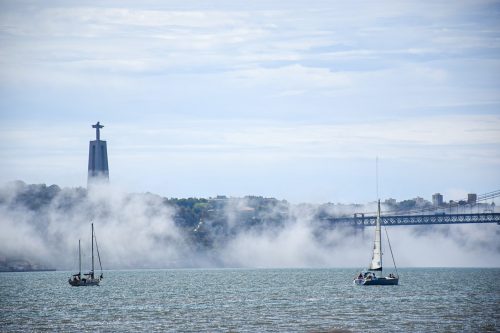
SO SAID (6)
TAAG (a mock poem)
“He who does not follow the stream, the source he will never meet.”
During three months a travel companion search for the melancholic soul in music. They reach out to local musicians and get in dialogue with minority groups. Stories are told and experienced, music is played, landscapes change and many encounters are made. Travel along from home with this blog!
Watch all posts below
or click on the icon to select only the stories, videos or photos.

TAAG (a mock poem)
“He who does not follow the stream, the source he will never meet.”
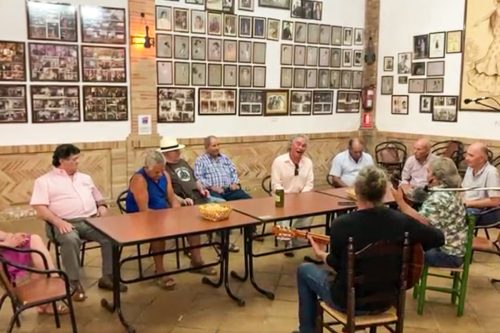
The great singer José Fernández Parrondo and friends play in their flamenco club in Carmona, Andalusia.
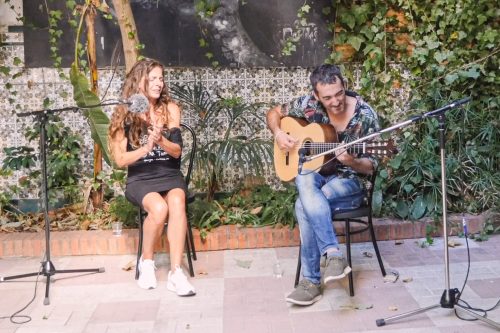
What can you wish more here in Algericas in Andalucia: Alicia Carrasco & José Manuel León.
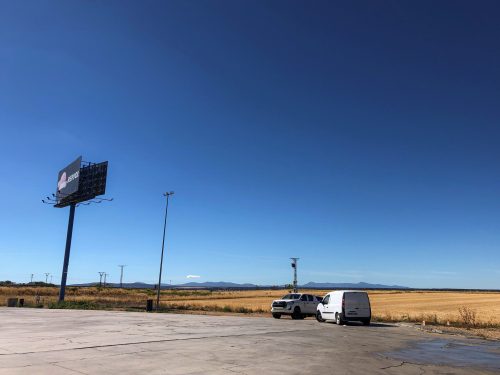
We pass Toledo. The main city of the autonomous province of Castilla-La Mancha. After the umpteenth tank-drinking-stop, we enter the Autovia del Sur again. A man is hitchhiking. “Adonde vas? Where to?” we ask.
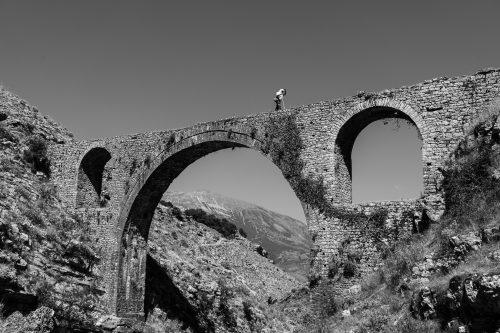
Hiraeth, a journey through 14 countries. Although, and we quote: “Italy are two countries, the South and the North. Spain are four: the Basque Country, Catalonia, Galicia and the rest.” And on and on.
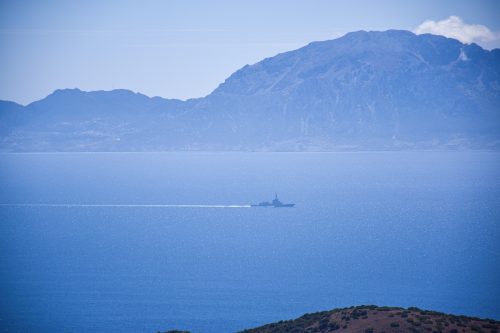
What if melancholy is a memory of a previous life. Or a premonition of what awaits in the next life. What if the source of the melancholy that overwhelms us is to be found there?
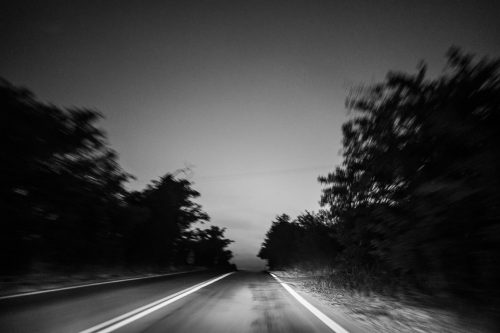
All people with roots in the south who were looking for work, security and happiness in the north. After an often long summer stay, yesterday was the day to say goodbye. It is also called the day of melancholy here.
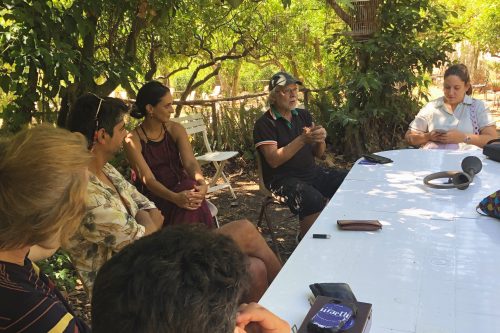
Perhaps it can be compared to the ripening of Sicilian oranges: experiences ripen in music not just once, but two, three,… countless times. And that is why it is possible that melancholic music, written by an experience of loss or impossible desire, eventually tastes so sweet.
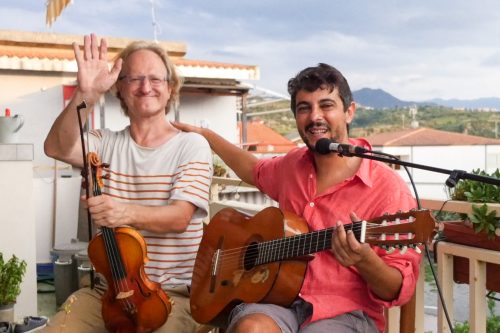
Sicilian musician Sebastiano Pietrini sings the lullaby Ninna Nanna for Elaia.
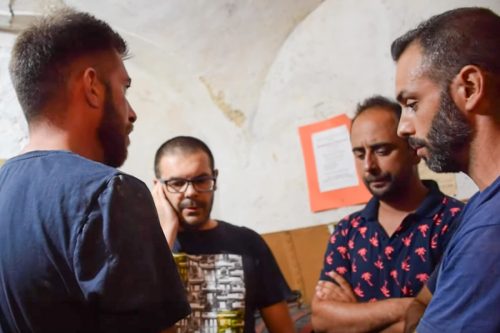
Muttos by Cuncordu Sas Bator Colonnas, tenores from Sardegna.
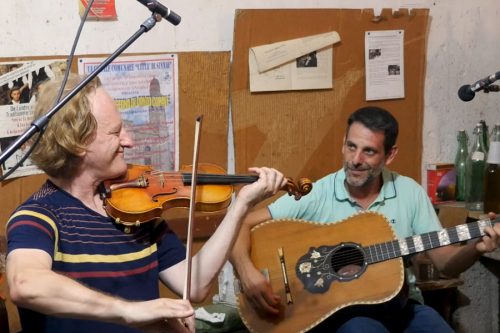
Hiraeth in Sardegna with Daniele Giallara from Cuglieri. The autentic Cantu a chiterra e violino.
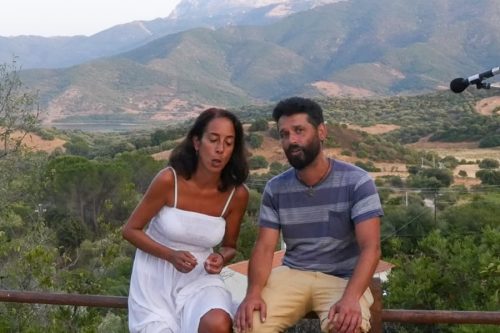
Pierangela Calzone en Raphaël De Cock sing Proe proe a tzia vetza.
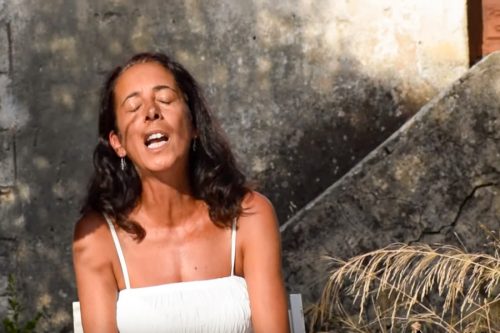
Hiraeth from Sardegna: Pierangela Calzone sings Non potho reposare.
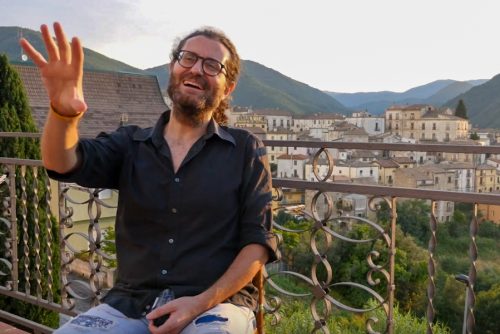
Giuseppe Longo talks about nostalgia in Calabria, South Italy.
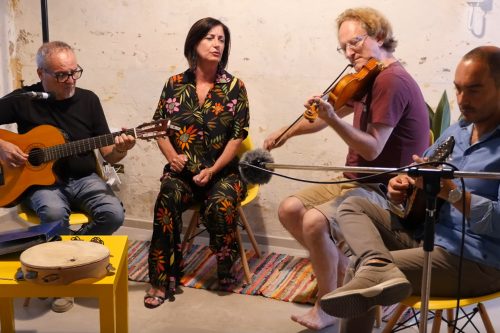
CantaCunti – Gianni Vico, Roberto Bascià, Maria Rosario Coppola – play Ninna Nanna, Il Martirio di Otranto.
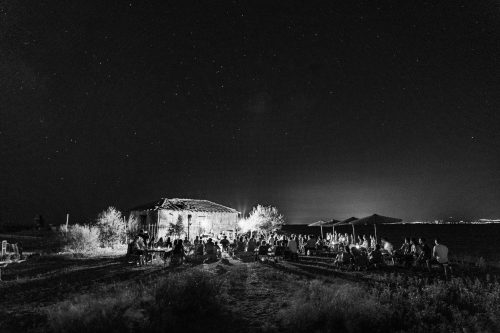
Discovering the cosy town with a concert of Niriis next to the coast.
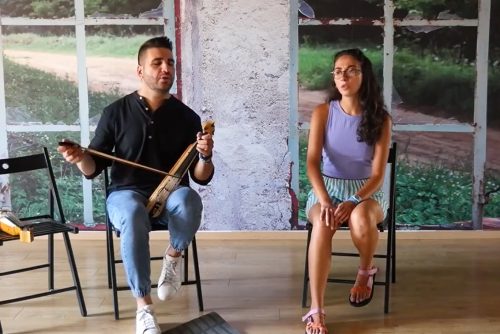
Polis Efraimidis and Natasa Tsakiridou play and sing Pontiac songs.
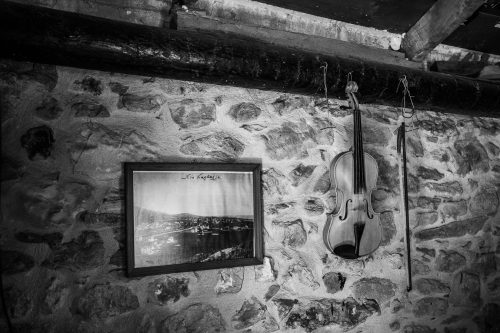
When we met Pontiac musicians Kyriakos and Zafiris at Stavroupoli.
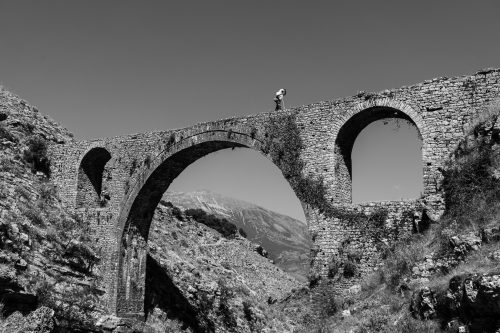
On the road in Albania searching for melancholy.
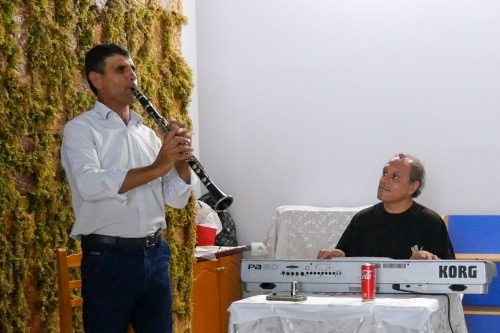
In search of the soul of South Albania with Bashkim & Fredi.
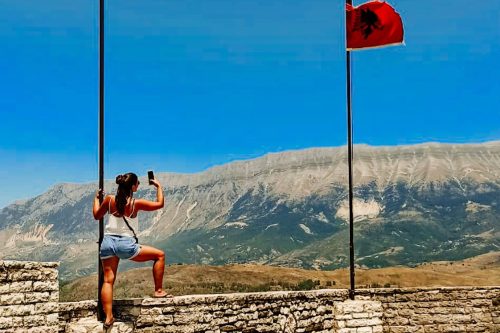
That afternoon we are awaited by musicians at a tavern in Sarandë, a beautiful seaside town on the Ionian Sea. A billboard welcomes us: “Discover your dream!”
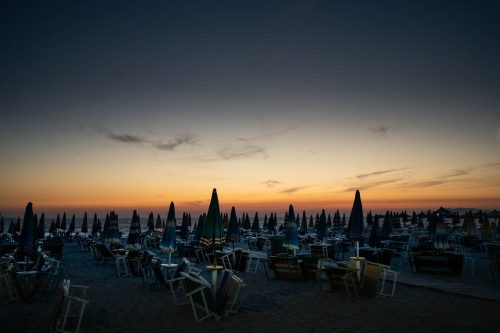
Never felt like I had to look for it.
It always knew how to find me. Effortlessly.
Melancholy.
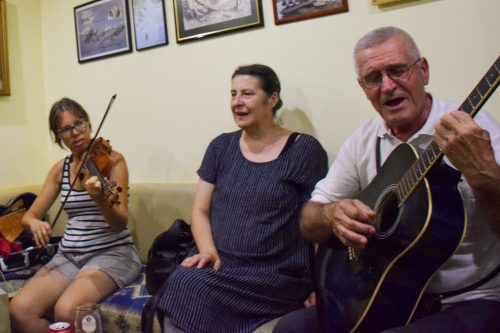
Wikipedia says: “Sevdah is a traditional genre of folk music from Bosnia and Herzegovina. Sevdah song is called sevdalinka.” Maybe, but Sevdah is above all that magical moment.
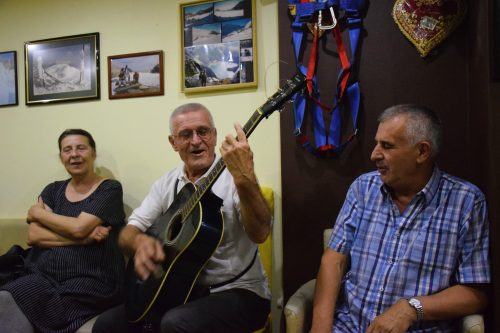
We stay in a towering residential block in a suburb of Sarajevo. The meetings for this day are rescheduled for another day. By the evening, a plan B has been arranged. There would be music! Three violins and a mandolin start their B repertoire. Melodies from Bulgaria, Bosnia, Brazil, Belgium,… pass in review.
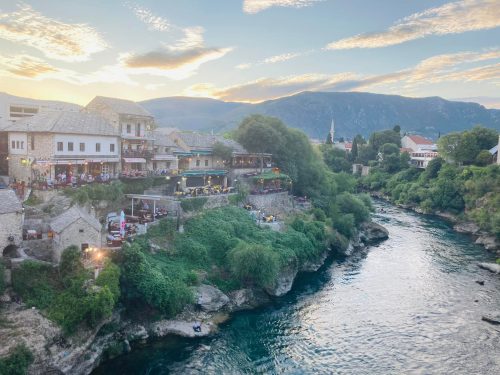
We are standing in Mostar, Bosnia. We are looking at a bridge. That bridge. The bridge.
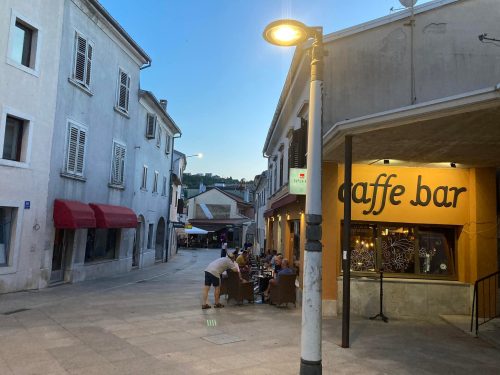
UNESCO? or Tito? Sisan, a small village in Istria. They speak Croatian and Italian. The only restaurant is packed. Let’s stay hungry.
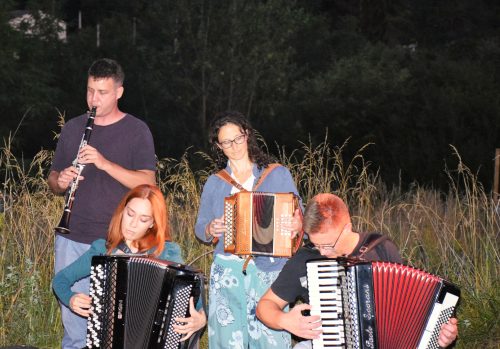
We are in Pazin, a small town in the middle of the Croatian peninsula of Istria. A group of local musicians is playing songs from the region but also from far beyond. Some contradictions linger in the air, but nearby, violins and an accordion, wind and fire, thoughts take their course: who are we, where and when…?
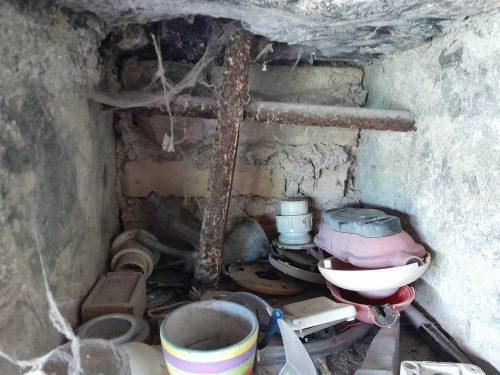
Minorities are sung about in all music, all over the world. Hiraeth is also a story with minorities. Count them. Because a minority is never far away. Even if there are many of you.
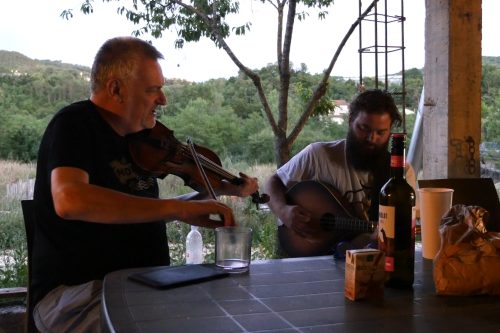
Istrian fiddler Dario Marušić and Goran Farkas let you hear the soul of Istria.
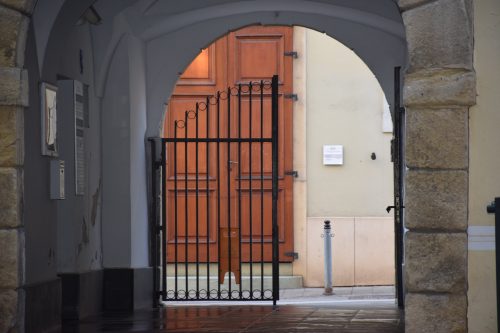
The suitcase is packed, expectations are high. Departing for the Balkans, in search of music, images and stories of melancholy in all its tones.
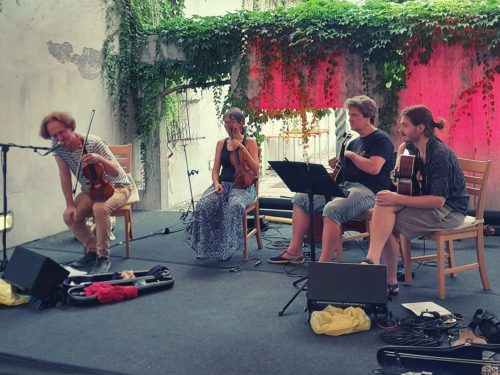
A very hot summer evening in Slovenia. A courtyard of a hostel in Ljubljana. There are three musicians. At the very back, 4 security guards stand around, hanging out uninterested and talking a tiny bit too loud. What exactly there is to secure is not entirely clear. But is it ever?
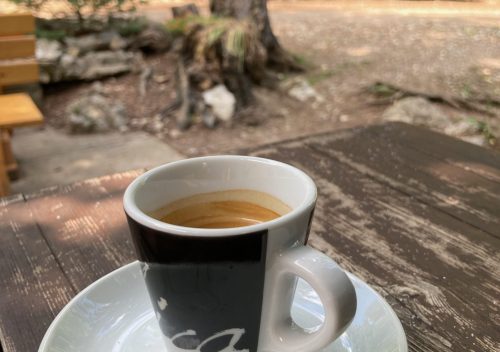
Music is music. The source of melancholy? Here’s a music school around the corner. Maybe that’s a good place to start that search?
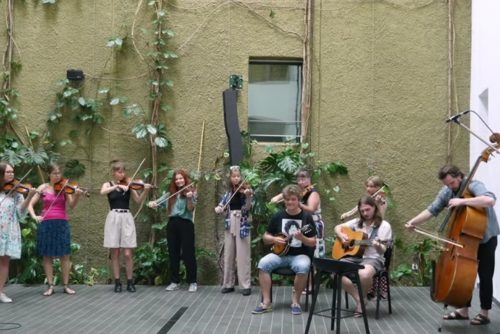
The beautiful Sephardic song Durme Durme by great musicians from Ljubljana.
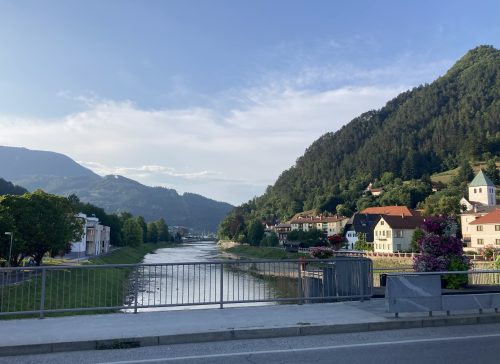
All the good consists of 3. Right through the traffic-free center of Ljubljana, the Ljubljanica flows. The bustling, tourist part on one side, the calmer historic center on the other side of the river. In the center of that center is a beautiful square. Named after France Prešeren a well known romantic poet. To connect his square with the other bank, one built three bridges at just 10 meters apart. Three! Why three? What is the story of these bridges?
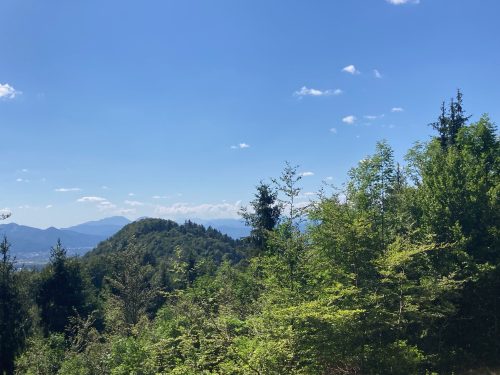
They step. They climb. Two Slovenians, Two Belgians. The four climb a hill. A hill, not a mountain. But when does a hill become a mountain?

Albanian musician Dino Murtezani & Wouter Vandenabeele play the Albanian song Martesa Jonë.
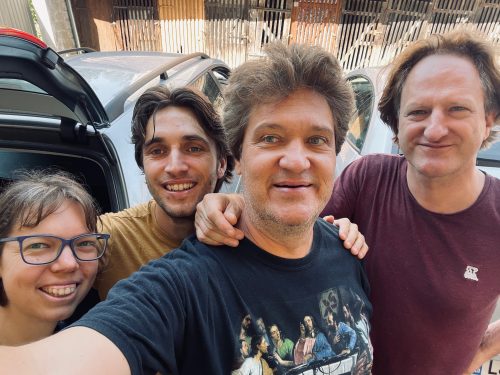
“We know where we’re goin’, but we don’t know where we’ve been. We’re on the Homesick Highway.”
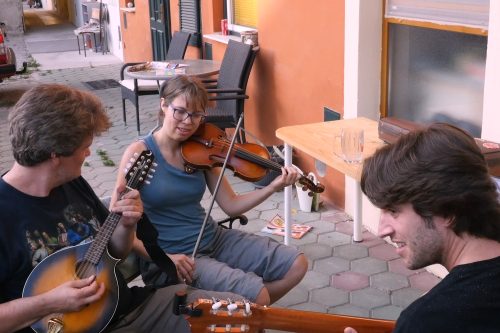
Bojan Cvetrežnik, Barja Drnovšek and Jean-Christophe Gairard play a melody from Moldova.
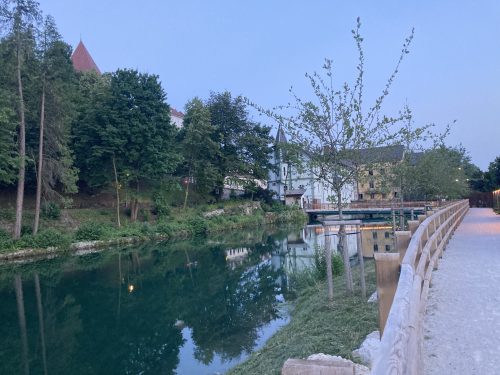
Music also bypasses boundaries, lines, demarcation lines, obstacles, barriers. The same songs are played from Slovenia to Portugal.
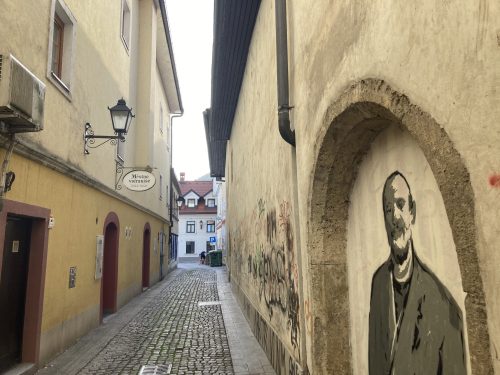
“If someone plays a song and 1,000 people all start crying, then the source of the melancholy can’t be far.” (Hiraeth score 8.5)
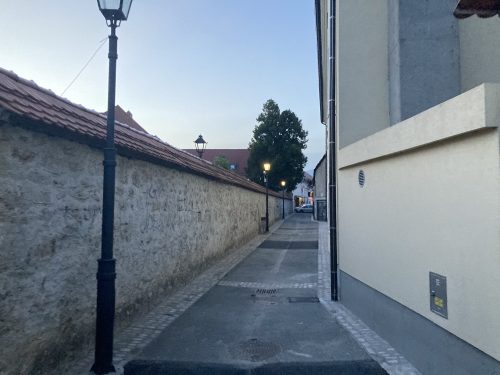
There are many more bridges than borders. Bridging bridges. They connect. They bring together what was separate.
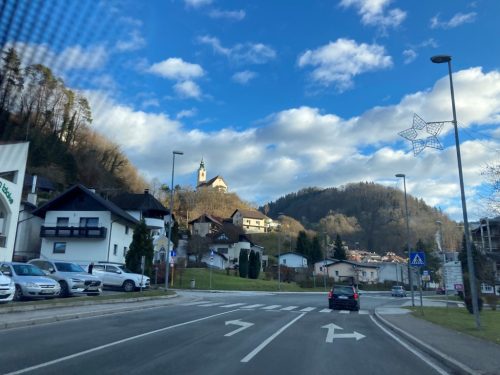
Less than 24 hours before departure. Gathering and packing things. Tomorrow at 9.30 am the search starts. A quest for “the source of melancholy”. Melancholy is a feeling; we can agree on that. But what exactly is it?
And where do we find that source?
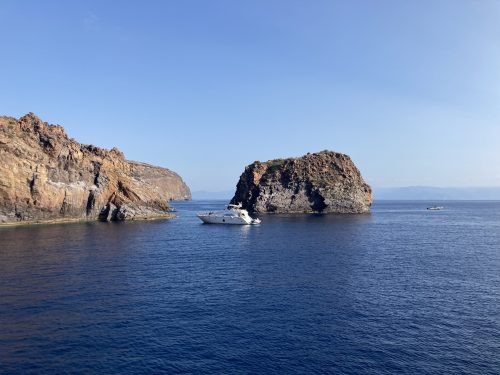
“Balkan, you have a feeling!” “Que?” Melanholija / melankolia / μελαγχολία / malinconia / melankolija / melancholia / melanholija / melancolía / меланхолија!
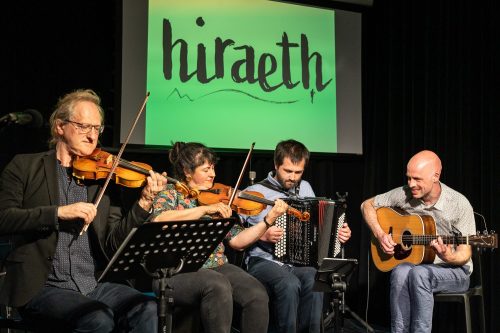
The Hiraeth project started with a support concert in the beautiful city Ghent, hometown of initiator Wouter Vandenabeele.
